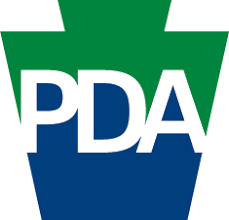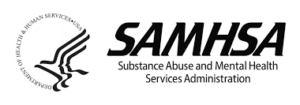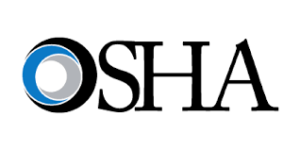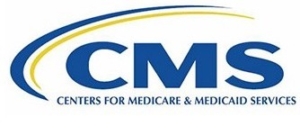SNAP Asks CMS to Provide Additional Funds for Safety-Net Hospitals in Round 2 of COVID-19 Grants (Letter)
SNAP asks CMS administrator Seema Verma to give special consideration to high-volume Medicaid hospitals when deciding on additional grants to be awarded from federal CARES Act funding for hospitals and health care providers.
 Department of Health Daily Briefing
Department of Health Daily Briefing DHS has posted an announcement to administrators, brokers, and transit agencies that participate in the Medical Assistance Transportation Program
DHS has posted an announcement to administrators, brokers, and transit agencies that participate in the Medical Assistance Transportation Program  The Department of Aging has issued guidance informing operators of facilities that serve older adults that the Identogo/Idemia sites that facilitate the FBI background checks of individuals who work at such facilities may remain open as life-sustaining businesses during the COVID-19 crisis; that there is no change in the background check requirements or processes for applicants seeking employment in such facilities; and that there are circumstances under which individuals who are unable to obtain FBI background checks because of the closure of some Identogo/Idemia sites may qualify for provisional hiring. See the guidance
The Department of Aging has issued guidance informing operators of facilities that serve older adults that the Identogo/Idemia sites that facilitate the FBI background checks of individuals who work at such facilities may remain open as life-sustaining businesses during the COVID-19 crisis; that there is no change in the background check requirements or processes for applicants seeking employment in such facilities; and that there are circumstances under which individuals who are unable to obtain FBI background checks because of the closure of some Identogo/Idemia sites may qualify for provisional hiring. See the guidance  Centers for Medicare & Medicaid Services
Centers for Medicare & Medicaid Services SAMHSA will fund
SAMHSA will fund  The Governor Wolf/Department of Health Daily Briefing
The Governor Wolf/Department of Health Daily Briefing OSHA has provided interim guidance to its regional administrators and state plan designees regarding
OSHA has provided interim guidance to its regional administrators and state plan designees regarding  Governor Wolf recommended that all Pennsylvanians wear masks outside the home. He elaborates on this recommendation in a
Governor Wolf recommended that all Pennsylvanians wear masks outside the home. He elaborates on this recommendation in a  The CDC has issued new
The CDC has issued new  HHS’s Office of Civil Rights has announced that it will not impose penalties for violations of certain provisions of the HIPAA privacy rule against health care providers or their business associates for the good faith uses and disclosures of protected health information by business associates for public health and health oversight activities during the COVID-19 nationwide public health emergency. See the Office of Civil Rights
HHS’s Office of Civil Rights has announced that it will not impose penalties for violations of certain provisions of the HIPAA privacy rule against health care providers or their business associates for the good faith uses and disclosures of protected health information by business associates for public health and health oversight activities during the COVID-19 nationwide public health emergency. See the Office of Civil Rights  The number of new COVID-19 cases yesterday rose 26 percent over the previous day.
The number of new COVID-19 cases yesterday rose 26 percent over the previous day. Pennsylvania tax revenues were $294.6 million short of official estimates in March, or 6.2 percent, according
Pennsylvania tax revenues were $294.6 million short of official estimates in March, or 6.2 percent, according  The Central Penn Business Journal has published an interview with Pennsylvania Department of Health Secretary Rachel Levine, who is leading the state’s response to the COVID-19 pandemic. Read that interview
The Central Penn Business Journal has published an interview with Pennsylvania Department of Health Secretary Rachel Levine, who is leading the state’s response to the COVID-19 pandemic. Read that interview  Under the declaration of a national state of emergency, the Department of Health and Human Services is authorized to waive or modify Medicare and Medicaid regulations; these are known as section 1135 waivers. In this case, the federal Centers for Medicare & Medicaid Services has issued a section 1135 waiver to Pennsylvania for its Medicaid program to:
Under the declaration of a national state of emergency, the Department of Health and Human Services is authorized to waive or modify Medicare and Medicaid regulations; these are known as section 1135 waivers. In this case, the federal Centers for Medicare & Medicaid Services has issued a section 1135 waiver to Pennsylvania for its Medicaid program to: There are now positive cases of COVID-19 in 60 of Pennsylvania’s 67 counties.
There are now positive cases of COVID-19 in 60 of Pennsylvania’s 67 counties. CMS has introduced dozens of changes that involve waivers from current regulations and requirements. A comprehensive, 26-page CMS document describing these changes can be found
CMS has introduced dozens of changes that involve waivers from current regulations and requirements. A comprehensive, 26-page CMS document describing these changes can be found  CMS is waiving current requirements to permit physicians whose privileges will expire to continue practicing at the hospital and for new physicians to be able to practice before full medical staff/governing body review and approval to address workforce concerns related to COVID-19. CMS also is waiving requirements about details of the credentialing and privileging process.
CMS is waiving current requirements to permit physicians whose privileges will expire to continue practicing at the hospital and for new physicians to be able to practice before full medical staff/governing body review and approval to address workforce concerns related to COVID-19. CMS also is waiving requirements about details of the credentialing and privileging process. CMS is waiving the requirement that physicians and non-physician practitioners must perform in-person visits for nursing home residents and will permit visits to be conducted, as appropriate, via telehealth options.
CMS is waiving the requirement that physicians and non-physician practitioners must perform in-person visits for nursing home residents and will permit visits to be conducted, as appropriate, via telehealth options. CMS is waiving various requirements that limit and define the use and documentation of verbal orders in a hospital.
CMS is waiving various requirements that limit and define the use and documentation of verbal orders in a hospital. CMS has published guidance on
CMS has published guidance on